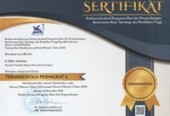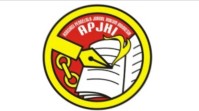State-Owned Enterprise’s Debt in the State Financial Regime
DOI:
https://doi.org/10.28946/slrev.Vol7.Iss1.1843.pp105-120Keywords:
Debt, Privatisation, State-Owned Enter-prise, State Finance, Government Financial Rescue.Abstract
Several Indonesian State-Owned Enterprises (SOEs) have had very high debts recently. Several reasons, such as government assignment projects, the impact of the Covid-19 pandemic, and corrupt management behaviour, have caused the increase in liability. There is a fierce debate among academics and legal scholars regarding whether the SOE’s debt is state debt. A state company is an independent legal entity separate from the state and obtains capital from separated state assets. Besides, the state, as the majority shareholder, assigns SOEs to projects that support government programs even though they are not profitable. In addition, several SOEs often receive State Equity Participation to survive bankruptcy caused by running out of capital or large debts. This paper will analyse the country's debt status from the perspective of public finance by taking the case of Indonesia. Moreover, it will explore the theoretical and empirical aspects of SOE’s debt from a state finance point of view. This study will use doctrinal legal research to interrogate the law as it is and should be. Although this research concludes that SOEs' finances are a state financial regime, the supervision of SOEs is not Government Judgment Rules but Business Judgment Rules. SOE's debt is the responsibility of SOE as a corporate legal entity. In the case of Indonesia, the government often rescues SOEs that have failed to pay their debts through State Equity Participation and/or privatisation while maintaining most state ownership shares, for instance, Garuda Indonesia, a national airline. Finally, state accountability for SOE's debt only occurs indirectly because of the financial separation between the state and companies. The Indonesian government saved Garuda Indonesia's finances to protect national assets and continue to control vital businesses. However, the state must also reform the management of SOEs so as not to harm state finances by upholding good corporate governance and preventing fraud and corruption.Downloads
References
Ansari, Teuku Syahrul. “Reminding State Enterprises (BUMN) Management Using the Principle of ’Business Judgment Rule’: A Preliminary Note.†Budapest International Research and Critics Institute (BIRCI-Journal) : Humanities and Social Sciences 2, no. 3 (July 31, 2019): 27–38. https://doi.org/10.33258/birci.v2i3.390.
Ansari, Teuku Syahrul, Herdi Sahrasad, and Irfan Iryadi. “Indonesian State Owned Enterprises (BUMN or SOEs), and the Urgency of Implementation of Principle of ’Business Judgment Rule’.†Jurnal Cita Hukum 8, no. 1 (March 23, 2020): 163–82. https://doi.org/10.15408/jch.v8i1.15042.
Apriyadi, Achmad Dwi. “Skema Penyelamatan Garuda Terungkap! Disuntik PMN Hingga Investor.†Detik Finance, 2022. https://finance.detik.com/berita-ekonomi-bisnis/d-6046243/skema-penyelamatan-garuda-terungkap-disuntik-pmn-hingga-investor.
Asikin, Zainal, Lalu Wira Pria Suhartana, and Usman Usman. “Aspek Hukum Pertangg Jawaban Keuangan Negara Dalam BUMN.†Jurnal Kompilasi Hukum 4, no. 2 (2019). https://doi.org/https://doi.org/10.29303/jkh.v4i2.29.
Atmadja, Arifin P. Soeria. Keuangan Publik Dalam Perspektif Hukum: Teori, Kritik Dan Praktik. Jakarta: Rajawali Press, 2009.
Barley, Stephen R. “Corporations, Democracy, and the Public Good.†Journal of Management Inquiry 16, no. 3 (September 22, 2007): 201–15. https://doi.org/10.1177/1056492607305891.
Tempo.co. “BPK: Fatwa Mahkamah Agung Tak Bisa Jadi Landasan Hukum,†2006. https://bisnis.tempo.co/read/84680/bpk-fatwa-mahkamah-agung-tak-bisa-jadi-landasan-hukum.
Christiansen, Hans. Balancing Commercial and Non-Commercial Priorities of State-Owned Enterprises. 6th ed. Paris: OECD Publishing, 2013.
Davies, Paul L., and Sarah Worthington. Gower Principles of Modern Company Law. London: Sweet & Maxwell, 2008.
Development, The Organization for Economic Co-operation and. OECD Guidelines on Corporate Governance of State-Owned Enterprises, 2015 Edition. Paris: OECD, 2015. https://doi.org/10.1787/9789264244160-en.
Diamond, Peter A., and Richard A. Posner. “Posner’s Economic Analysis of Law.†The Bell Journal of Economics and Management Science 5, no. 1 (1974): 294–300. https://doi.org/10.2307/3003108.
Firzada, Mohammad Iqbal. “Penyertaan Modal Negara, Pemulihan Ekonomi Nasional Untuk BUMN.†Ministry of Finance of the Republic of Indonesia, 2020. https://www.djkn.kemenkeu.go.id/artikel/baca/13145/Penyertaan-Modal-Negara-Pemulihan-Ekonomi-Nasional-Untuk-BUMN.html.
Gillis, Malcolm. “The Role of State Enterprises in Economic Development.†Social Research 47, no. 2 (1980): 248–89.
Ginting, Edimon, and Kaukab Naqvi. “Reforms, Opportunities, and Challenges for State-Owned Enterprises.†Manila, Philippines, July 1, 2020. https://doi.org/10.22617/TCS200201-2.
Economist Intelligence. “Indonesian State-Owned Enterprise Debts Swell,†2021. http://country.eiu.com/article.aspx?articleid=1711123354&country=indonesia&topic=economy&subtopic=forecast&subsubtopic=fiscal+policy+outlook&u=1&pid=1471104330&oid=810892464.
Khairandy, Ridwan. “Korupsi Di Badan Usaha Milik Negara Khususnya Perseroan: Suatu Kajian Atas Makna Kekayaan Negara Yang Dipisahkan Dan Keuangan Negara.†Jurnal Hukum IUS QUIA IUSTUM 16, no. 1 (2009): 73–87. https://doi.org/10.20885/iustum.vol16.iss1.art5.
Kim, Kyunghoon. “Who Is Responsible for State-Owned Enterprises’ Debts?†The Jakarta Post, 2019. https://www.thejakartapost.com/academia/2016/11/29/who-is-responsible-for-state-owned-enterprises-debts.html.
Maimunah, Siti, Srihadi Winarningsih, and Ida Farida. “How Does State Equity Participation Contribute to Performance of State-Owned Enterprises in Indonesia?†Cuadernos de EconomÃa 45, no. 1 (2022): 32–43. https://cude.es/submit-a-manuscript/index.php/CUDE/article/view/213.
Makawimbang, Hernold Ferry. Memahami Dan Menghindari Perbuatan Merugikan Keuangan Negara Dalam Tindak Pidana Korupsi Dan Pencucian Uang. Yogyakarta: Thafa Media, 2015.
Millward, Robert. “Public Enterprise in the Modern Western World: An Historical Analysis.†Annals of Public and Cooperative Economics 82, no. 4 (December 2011): 375–98. https://doi.org/10.1111/j.1467-8292.2011.00447.x.
Musacchio, Aldo, and Sergio G. Lazzarini. “Reinventing State Capitalism: Leviathan in Business, Brazil and Beyond.†Enterprise and Society 15, no. 4 (December 2, 2014): 936–38. https://doi.org/10.1093/es/khu039.
Nefi, Arman. “Conflict of Law UU Keuangan Negara vs UU BUMN.†Hukumonline, 2021.
Nurfahmi, Lala Taprisa Paksi, Henny Juliani, and Nabitatus Sa’adah. “Tinjauan Terhadap Pemaknaan Kekayaan Negara Yang Dipisahkan Pada Bumn Dan Akibat Yang Timbul Pasca Putusan Mahkamah Konstitusi Nomor 48/Puu-Xi/2013.†Diponegoro Law Journal 8, no. 2 (2019): 1277–94. https://ejournal3.undip.ac.id/index.php/dlr/.
Organisation for Economic Co-operation and Development. “Organisation for Economic Co-Operation and Development,†2021. https://www.oecd.org/corporate/ownership-and-governance-of-state-owned-enterprises-a-compendium-of-national-practices.htm.
Prasetya, Rudhi. Kedudukan Mandiri Perseroan Terbatas Disertai Dengan Ulasan Menurut Undang-Undang Nomor 1 Tahun 1995. Bandung: Alumni, 1995.
Puspa, Anitana Widya. “PKPU Garuda (GIAA) Diperpanjang 2 Kali, Ini Nasib Proposal Perdamaian.†Bisnis.com, 2022. https://ekonomi.bisnis.com/read/20220322/98/1513769/pkpu-garuda-giaa-diperpanjang-2-kali-ini-nasib-proposal-perdamaian.
Rajagukguk, Erman. Pengertian Keuangan Negara Dan Kerugian Negara†in Pengertian Keuangan Negara Dalam Tindak Pidana Korupsi. Jakarta: The National Legal Commission of the Republic of Indonesia, 2006.
Ramalan, Suparjo. “3 Penyebab Utang Garuda Bengkak.†iNews.id Multimedia, 2021. https://www.inews.id/multimedia/infografis/infografis-3-penyebab-utang-garuda-bengkak.
Ramasamy, Bala, Matthew Yeung, and Sylvie Laforet. “China’s Outward Foreign Direct Investment: Location Choice and Firm Ownership.†Journal of World Business 47, no. 1 (January 2012): 17–25. https://doi.org/10.1016/j.jwb.2010.10.016.
“Republic of Indonesia Financial Sector Assessment.†International Monetary Fund. Washington DC, 2017. https://openknowledge.worldbank.org/handle/10986/28391.
Rodrik, Dani. "Understanding Economic Policy Reform." In Modern Political Economy and Latin America, 59–70. Routledge, 2018.
Sitepu, Sopian. “State Owned Enterprises Finance from the Perspective of State Funds.†Yuridika 35, no. 2 (December 26, 2020): 363–88. https://doi.org/10.20473/ydk.v35i2.16874.
CNN Indonesia. “Skema Penyelamatan Garuda Indonesia Dari Kementerian BUMN,†2022. https://www.cnnindonesia.com/ekonomi/20220425183412-92-789516/skema-penyelamatan-garuda-indonesia-dari-kementerian-bumn.
Asian Development Bank. “State-Owned Enterprise Engagement And Reform: Evaluation Document,†2018. https://www.adb.org/documents/state-owned-enterprise-engagement-and-reform.
Bank Indonesia. “Statistik Utang Sektor Publik Indonesia (SUSPI),†2021. https://www.bi.go.id/id/statistik/ekonomi-keuangan/suspi/default.aspx.
Stigler, George J. “The Theory of Economic Regulation.†The Bell Journal of Economics and Management Science 2, no. 1 (1971): 3–21. https://doi.org/10.2307/3003160.
Sulaiman, Stefanno Reinard. “How Are SOEs Performing under Jokowi?†thejakartapost, 2019. https://www.thejakartapost.com/news/2019/03/11/how-are-soes-performing-under-jokowi.html.
Supramono, Gatot. BUMN Ditinjau Dari Segi Hukum Perdata. Jakarta: Rineka Cipta, 2016.
The Bankable SOE: Commercial Financing for State-Owned Enterprises. Manila, Philippines: ADB, 2021. https://doi.org/10.22617/TCS210329.
Tif. “Fatwa MA Yang Menjadi Kontroversi.†Hukumonline, 2006. https://www.hukumonline.com/berita/a/fatwa-ma-yang-menjadi-kontroversi-hol15556.
Widjanarko, Donny Satya. Implikasi Yuridis Putusan Mahkamah Konstitusi Nomor 48/PUU-XI/2013 Terhadap Independensi Perusahaan Mengenai Pengelolaan Harta Kekayaan BUMN Dalam Mewujudkan Prinsip Good Corporate Governance." PhD Diss. Malang: Brawijaya University, 2015.
Yu, Xie. “Bond Defaults Reach Once-Safe Corners of Chinese Finance.†WJS.com, 2019. https://www.wsj.com/articles/bond-defaults-reach-once-safe-corners-of-chinese-finance-11576232065.
Zapała, Jakub. “Otto von Gierke and His Early Corporatism.†Przegląd Humanistyczny 470, no. 64.3 (January 19, 2021): 18–19. https://doi.org/10.31338/2657-599X.ph.2020-3.1.















